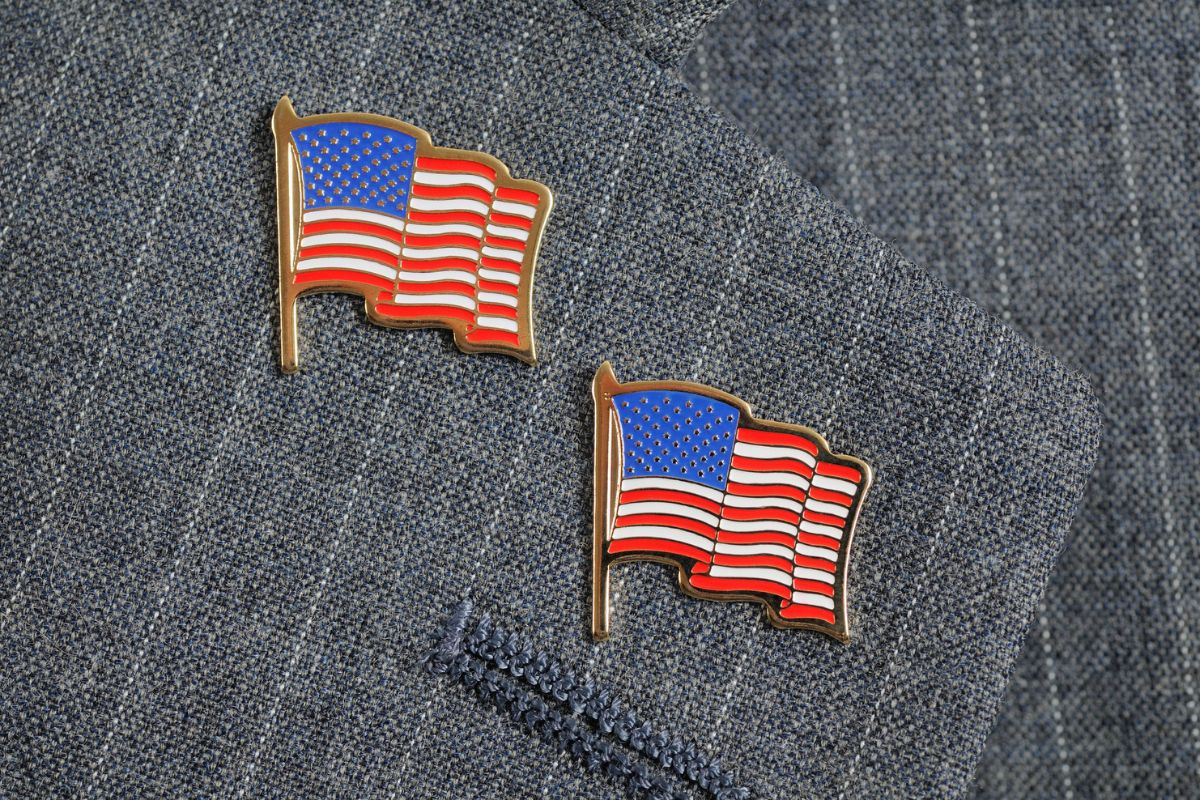Apple Employee Forced To Hide Their Heritage Because People See Their Ethnicity as Inherently Political

Do you know what doesn’t help an already tense situation of troubleshooting hardware/software at an electronics store during peak hours? Bigotry—well, among other things. Unfortunately, that was the case for Apple Store employee and writer Tariq Raouf. The queer Palestinian American took to TikTok and Twitter to discuss an interaction with customers that ended with their heritage being framed as “political solicitation.”
The situation started with Raouf helping an Israeli couple that came in with issues with their device. As soon as Raouf learned the customers were from Israel, Raouf said they “upped everything” to make sure the interaction stayed positive. Because they were wearing a basic Palestinian flag lapel pin, the customers already knew Raouf was Palestinian, or at least a supporter of Palestinian rights. Still, Raouf then described the all too familiar feeling of people acting racist without saying anything explicitly. They didn’t say “microaggression,” but the word describes the situation Raouf explained.
While holding back their employers’ name (until now), Raouf has described similar moments to this before. They even went by “Kyle” for years to limit negative interactions with people based on being Arab/Palestinian. Despite having two activist parents, Roauf disassociated themself from their identity out of an act of self-preservation.
Removal of the lapel pin
@tariqraouf Episode 1 | I got discriminated against at #work, and I need your help telling the company this is unacceptable. #discrimination #apple #racism #notokay ♬ original sound – Tariq Raouf
Despite this bad situation, Raouf tried to work with them to get their device fixed. After management declined to do the necessary repair (against Raouf’s wishes), Raouf states that the couple demanded the managers force him to take off his Palestinian pin then and there. Citing the business conduct code, management ultimately forced them to remove the pin, calling it “political solicitation.”
Roauf pointed out in their video that while wearing a general flag pin isn’t inherently political, Apple (including the physical stores), does take political positions all the time. This is particularly in regard to celebrations of Pride Month and Black History Month—in the form of marketing and merchandise. Additionally, Apple sold 22 country flag bands during the 2021 Special Olympics.
Roaf stressed that they love working for Apple. They met their husband there, and have been an employee for nine years. However, this most recent incident crosses a line, prompting them to share this story online.
This is not the first instance of this happening to a Palestinian in the diaspora or even in tech. In 2022, Jewish Diaspora in Tech founder Ariel Koren told Mint Press News that Google employees were reported for antisemitism just for identifying as Palestinian or Palestinian American. On March 20, a few weeks after calling for Huwara, a Palestinian town, “to be erased,” Israeli Finance Minister Bezalel Smotrich said, “there is no such thing as the Palestinians.”
This speech garnered an exceedingly rare U.S. condemnation. Despite sending billions a year in weapons, the State Department almost never condemns Israeli Apatheid in speech or physical violence. Even when Israeli Jews are fighting for their rights and access to democracy, the U.S. stays pretty quiet.
Identity is political
Community identification and names are super duper political—especially when your humanity is actively being erased. Power and decision-making are core to politics and names. Shedding cultural markers like names, language, dress, etc. allowed many European immigrants to inherit the privileges of whiteness in the U.S. Just look at the history of hyphenated labels (like Chinese-American) or calling oneself “Black” versus—a long list of other names. Consider the arguments of “LBGT+” versus “gay.” Lots of these examples come from colonialism (1500s forward) and the construction of race (1600s forward). However, cultural identity being political probably goes back to the development of civilization.
Where the argument cited in Apple’s argument falls apart is in calling it “solicitation.” A nation’s flag—the widely agreed upon one, not alterations—is not a solicitation. (This doesn’t apply to the Confederate battle flag as that was not the country’s flag. Also, even though it only lasted four years, it’s treasonous due to its formation out of the U.S.) Unless the company is going to do away with allowing people to wear pins of any national flag (which is within their rights), this could become a civil rights issue. Raouf stated,
Palestinians get discriminated against every single day. If the only thing I can do right now is to help allow other Palestinian Apple employees wear the Palestian flag on their lapel at a time when our community is being so so attacked—then, that’s what I’m going to do.
Raouf and thousands of others are demanding that Apple change this targeted discrimination. In the meantime, Raouf is finding other ways to express themself and their family’s culture.
(feature image: PapaBear via Getty Images)
Have a tip we should know? [email protected]
